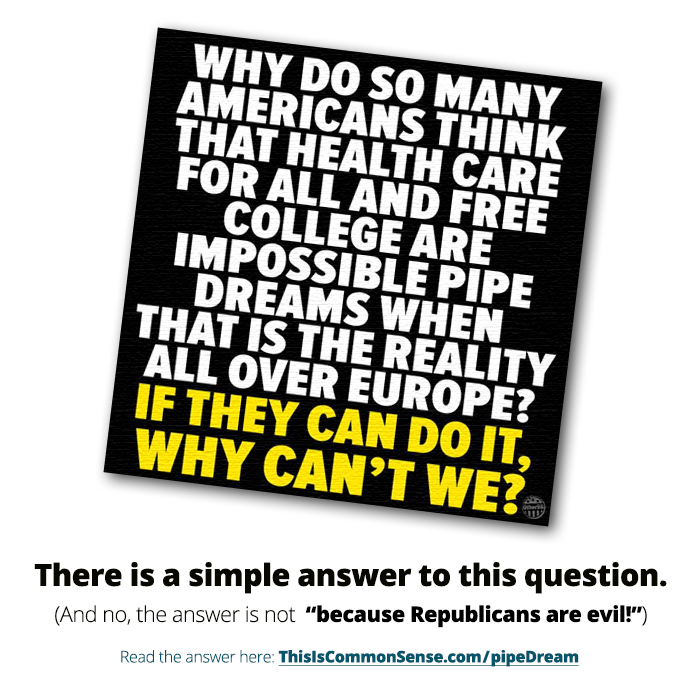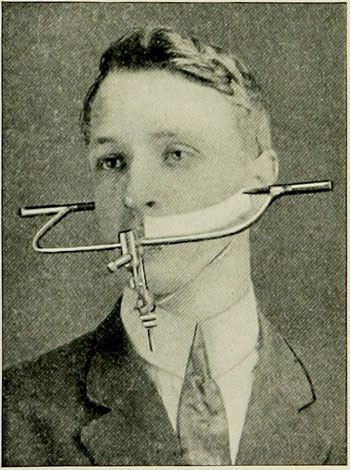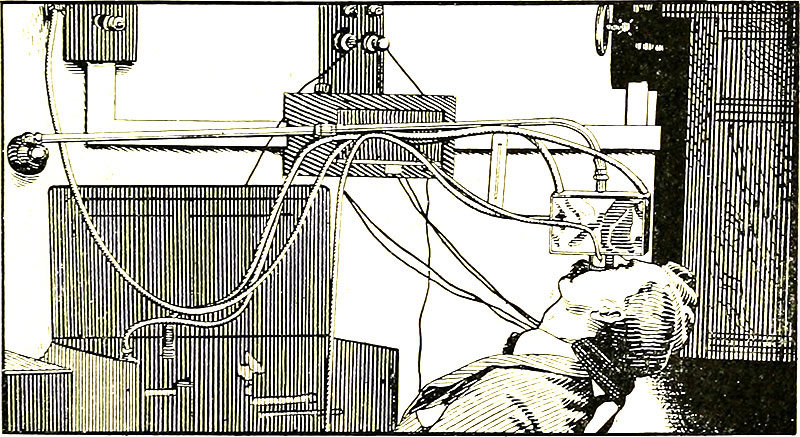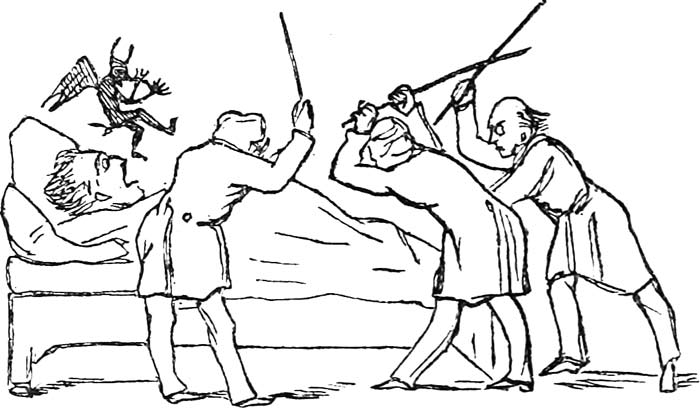I’m With the Herd!
Original (cc) photo by Jason Hollinger on Flickr


It takes a treasure trove of love for government to demand that taxpayers fund politicians and political parties, in addition to basic government services — and “handouts for everybody.”
Most of us have enough horse sense to seek to reduce the scope of subsidy in society. Especially subsidies to politicians and activists. Who wants their tax money going directly to their ideological opponents?
Well, at least there is one area in recent times that has been defunded: the major parties’ national conventions.
The quadrennial indoor parades and awards shows that constitute the modern presidential nominating conventions don’t have the same function that they used to. Because of the primary system, and a number of other factors as well, the conventions aren’t so much selection mechanisms as “four-day infomercials.”
That’s Anthony L. Fisher’s term for the spectacles.
Fisher, in “Who Paid for the Conventions” — which appears in the October 2016 issue of Reason magazine — informs us that “this year, for the first time since 1972, the parties and their host cities’ host committees were on the hook to raise all the money” to pay for these festivals of folly.
Specifically, the directive was 2014’s Gabriella Miller Kids First Research Act, which diverted the convention subsidy funds to pediatric health care research.
It sounds like a good cause. But it is worth noting, once again, that Congress, when it defunds one thing, rarely just neglects to “spend the money.”
It’s the Spending, Stupid. Or stupid spending.
In any case, one small step for Congress, one giant leap for getting taxpayers out of politics.
This is Common Sense. I’m Paul Jacob.
Artwork based on original cc photo by Purple Slog on Flickr

There are times I wish I were a tax accountant.
You know, just so I could better understand the news.
The European Commission has handed Apple, Inc., a $14.5 billion tax bill.
Owed to Ireland.
Apple, the tax commissioners said, had paid too little in taxes to Ireland, amounting to a mere 1 percent of the company’s European profits.
The Emerald Isle’s normal corporate tax rate is 12.5 percent.
On first read, this sounded like a tale of crony capitalism, with the EU’s tax authorities riding in, heroically, holding aloft the gonfalon of fair play, on the side of truth, justice, and an even playing field.
Well, the story gets complicated. The U.S. Treasury has protested the ruling as unfair. And Senator Chuck Schumer called it a “cheap money grab.”
The Wall Street Journal opinion page comes out on Apple’s side, too, but gives some specifics. Apple paid all the taxes it owed under Irish and EU law, but the ruling wasn’t about law, it was, we are told, about politics.
I can believe that.
So, as near as I can make out, what we have here are three sets of governmental interests, each intent on sucking the most out of a rich, innovative, and wildly successful multinational corporation.
It’s hard not to side with the target, Apple, and think of the other groups as mere parasites.
After all, my non-accountant’s spidey sense suspects that Schumer objects because the U.S. government isn’t going to get any of that $13 billion.
Preferring an “expensive money grab,” I suppose.
This is Common Sense. I’m Paul Jacob.

“Marijuana is only legal for white people, in California,” explains Lynne Lyman of the Drug Policy Alliance. Talking with Zach Weissmueller, on reason.tv, she clarifies the situation regarding California’s currently legal medical marijuana, and why Prop. 64, a ballot measure sponsored by Californians for Responsible Marijuana Reform, is so necessary.
Marijuana prohibition — which has been severely curtailed in the states of Alaska, Colorado, Oregon and Washington, all of which allow not only doctor-prescribed “medical marijuana,” but also recreational use — is still in play in California, despite legal medicinal use.
But the weight of the state’s heavy hand falls mainly upon the poor, especially on racial minorities. “If you are white and over 21 in California,” Ms. Lyman insists, “you can pretty much use marijuana without any sort of criminal justice involvement.”
So here is where the old canard that pushing for legalization and the right to self-medicate is “just about you smoking dope,” which is what I often hear. Californians’ best reason to vote for Prop. 64 is that it establishes something very much like a right to self-medicate, and — get this! — it altruistically applies to more than the white population.
The truth is, drug prohibition in America has been, mostly, racist.
Sure, alcohol prohibition transcended racial bias and bigotry. But the earliest federal laws against opium, heroin, and cocaine were directed at despised minorities, first the Chinese and even, many years later (after alcohol prohibition failed) when marijuana was made illegal, against blacks, “ne’er-do-well” jazz musicians, and Latinos.
So, one reason for white Californians to vote for legal marijuana is not so they can imbibe, but so that others aren’t unjustly persecuted.
This is Common Sense. I’m Paul Jacob.
Original cc photo by ashton on Flickr

As Americans contemplate the intellectual breakdown of our two major parties, Brits and Europeans are trying to figure out what the state of their union is.
Does Brexit spell disaster for Europe?
Germany’s vice-chancellor is just the latest European bigwig to preach gloom and doom. According to the BBC, “Sigmar Gabriel said the EU would go ‘down the drain’ if other states followed Britain’s lead and that the UK could not keep the ‘nice things’ about Europe while taking no responsibility.”
What that “responsibility” is, I do not know.
But look: it is not as if an international order is all that difficult. In the 19th century, freedom of movement was accepted as the civilized standard — except in Russia.
In the 1800s, Britain and France agreed to bilateral free trade, and then Britain went unilateral with free trade. Prosperity ensued in Britain. Even in Europe proper, the century-long trend of wealth was upward.
And now a number of economists are advising the new British government to follow that old path — “a unilateral free trade deal would allow the UK to import cheaper goods and gain access to new markets, delivering greater prosperity,” The Guardian summarized.
Maybe the EU should go under. For the key to the union was subsidies along with EU-regulated trade. European states could adopt free trade without bullying from Brussels. And forget subsidies as a way of life.
America could do likewise, but not if Hillary or The Donald gets elected.
This is Common Sense. I’m Paul Jacob.
Note: In most browsers, hovering your mouse over the bolded, silver text will give you “footnotes” of explanation.

 In Europe, some large programs (like “free” healthcare and college”) appear to work for some countries and are a complete disaster for other nations. In many southern European nations, citizens look on state provided healthcare with horror, and make every effort to insure that they don’t have to depend on that system.
In Europe, some large programs (like “free” healthcare and college”) appear to work for some countries and are a complete disaster for other nations. In many southern European nations, citizens look on state provided healthcare with horror, and make every effort to insure that they don’t have to depend on that system.
American progressives are strangely incurious about what makes some systems work and other systems crash and burn. In many cases, the explanation is cultural and institutional.  (As it happens, Scandinavians had a well-established culture of hard work and self reliance and social cohesion, which is what made the establishment of a large welfare state even possible. When the Scandinavians began their ambitious welfare programs, it was a point of honor among many to NOT USE IT. This attitude has been eroded over time).
(As it happens, Scandinavians had a well-established culture of hard work and self reliance and social cohesion, which is what made the establishment of a large welfare state even possible. When the Scandinavians began their ambitious welfare programs, it was a point of honor among many to NOT USE IT. This attitude has been eroded over time).
The Scandinavian models also have had better success rates because they have focused on maintaining a VERY FREE business environment, with corporate taxes LOWER than are found in the US, and limits placed on unions (a practice that would be abhorrent to the average American progressive).
 quickly become bloated, inefficient and corrupt. The government is currently $21 trillion in debt.
quickly become bloated, inefficient and corrupt. The government is currently $21 trillion in debt.Opponents of the progressive welfare state believe that considerable damage could be done to the American system (which has always been a powerhouse of innovation and expertise), and many people could be hurt.
